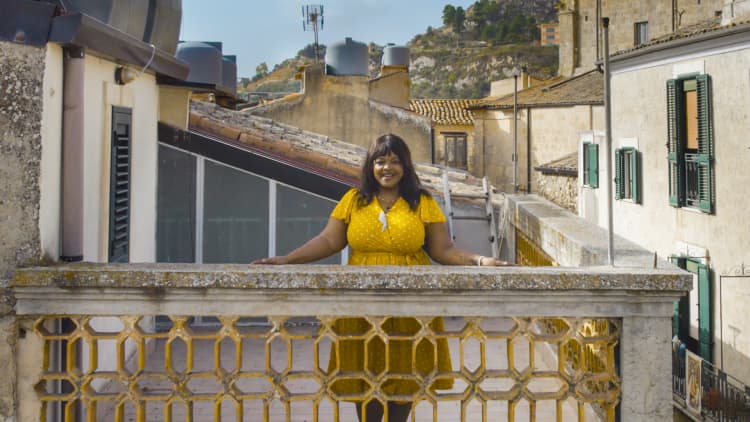Almost one-third, 30%, of Americans say they have experienced feelings of loneliness once a week during the last year, according to a January 2024 poll by the American Psychiatric Association. And 10% say they feel lonely every day.
In a recent conversation, professor and researcher Brené Brown and Belgium American psychotherapist Esther Perel identified a possible culprit for these feelings of isolation: social media.
"When I went off social media for a year, it was one of the best things that ever happened to me," says Brown, who hosts the podcast "Unlocking Us."
Being off Instagram and Twitter made her better able to invest in real life conversations.
"If we believe that time and energy and focus are finite, when you live in that world online something is going to give in your real life," Brown says.
'Modern loneliness masks as hype-connectivity'
Americans are split on whether social media helps or hinders us in making deep connections, according to the APA survey.
Almost 70% say social media is "beneficial for forming and maintaining relationships," but only 54% say these connections are meaningful and 46% say they are superficial.
For many people, online connections can present like substantive friendships when they are not, says Perel, who hosts the podcast "Where Should We Begin?"
"Modern loneliness masks as hype-connectivity," Perel says. "It's not about being physically alone, but about being misunderstood, unseen, rejected, ostracized, all of that."
It's not about being physically alone, but about being misunderstood, unseen, rejected, ostracized, all of that.Esther Perel
People end up having dozens of conversations on Twitter and Instagram, but no one to listen to their anxieties or challenges, a phenomenon Perel calls "artificial intimacy."
"Artificial intimacy are all the experiences that we currently have that are pseudo-experiences," she says. "They should give us the feeling of something real but they don't. I am talking to you about something deeply personal and you're answering me, 'uh-huh, uh-huh.' And I should be feeling connected, open, vulnerable, but [...] you're not present and I'm feeling a certain kind of loneliness."
'It's an amazing thing how many people are going to spend the night at home'
If you've experienced more feelings of loneliness or isolation lately, getting off social media can help. But, you also have to refocus some of that energy into making plans, Perel told Dan Harris on his podcast "Ten Percent Happier."
The quickest way to reduce loneliness and increase your happiness is to ask a friend to do something today.
"People may often be busy three weeks before but they're not busy the day of," Perel says. "It's an amazing thing how many people are going to spend the night at home."
If you don't know who to call, Perel suggests to Harris asking yourself a few questions:
- Who do you owe a phone call to?
- Who do you owe an apology to?
- Who do you want to go on a walk with?
After giving up social media, Brown was able to dedicate more time to those with whom she had deeper relationships.
"I had so much more energy for connections with people that would hold my hair back if I was sick and throwing up, would talk to me about my mom's dementia journey, would feed my dog," Brown says.
Want to make extra money outside of your day job? Sign up for CNBC's new online course How to Earn Passive Income Online to learn about common passive income streams, tips to get started and real-life success stories. Register today and save 50% with discount code EARLYBIRD.
Plus, sign up for CNBC Make It's newsletter to get tips and tricks for success at work, with money and in life.



